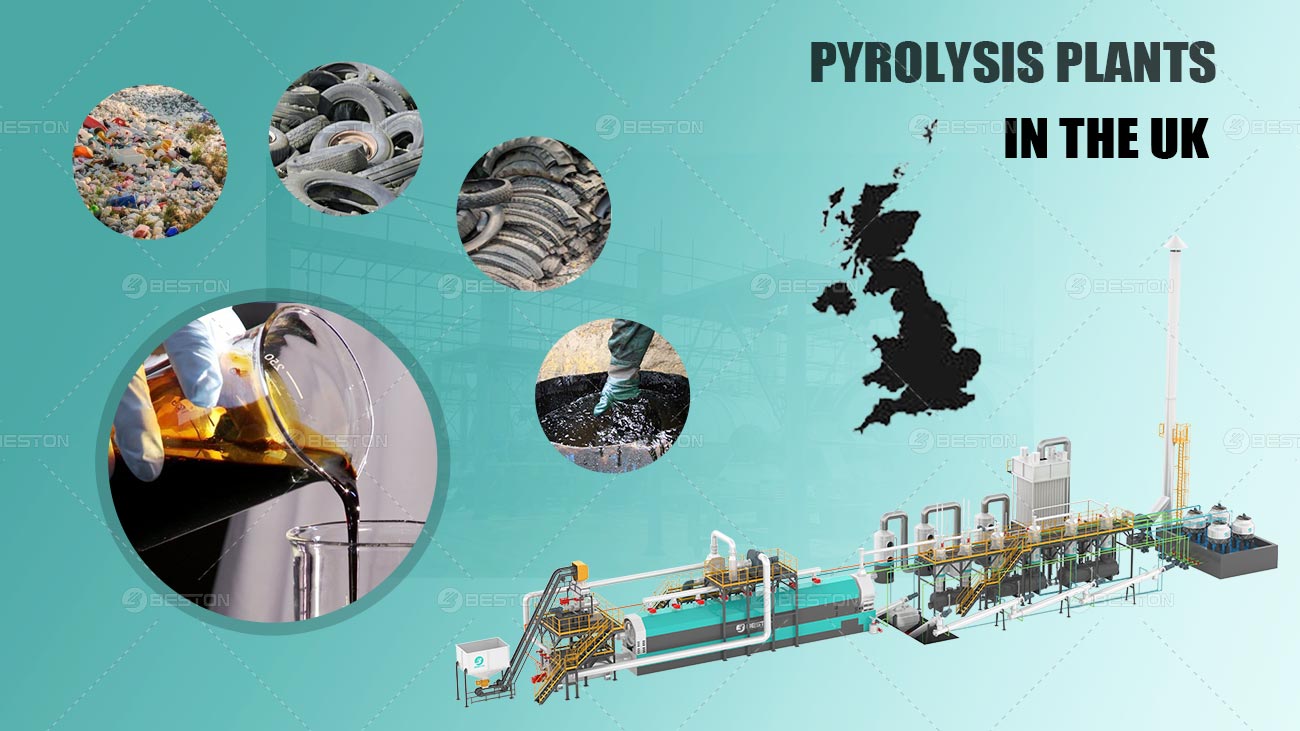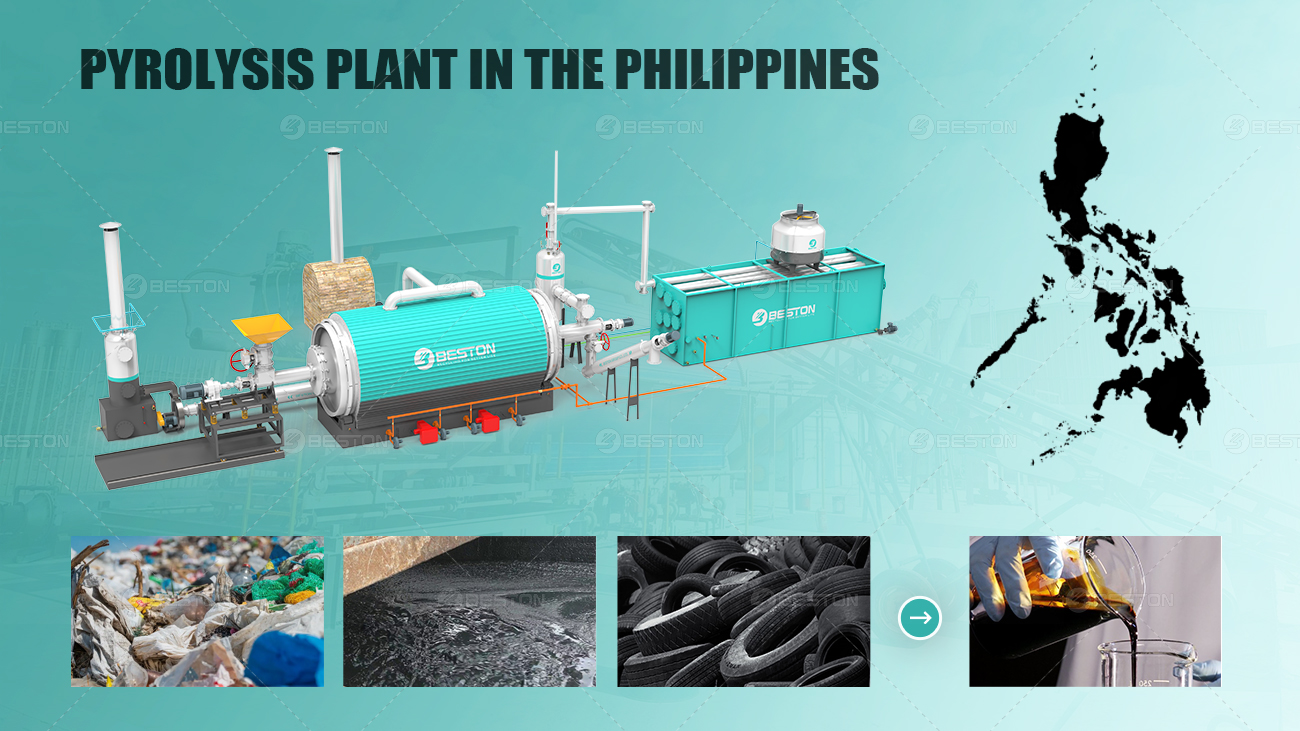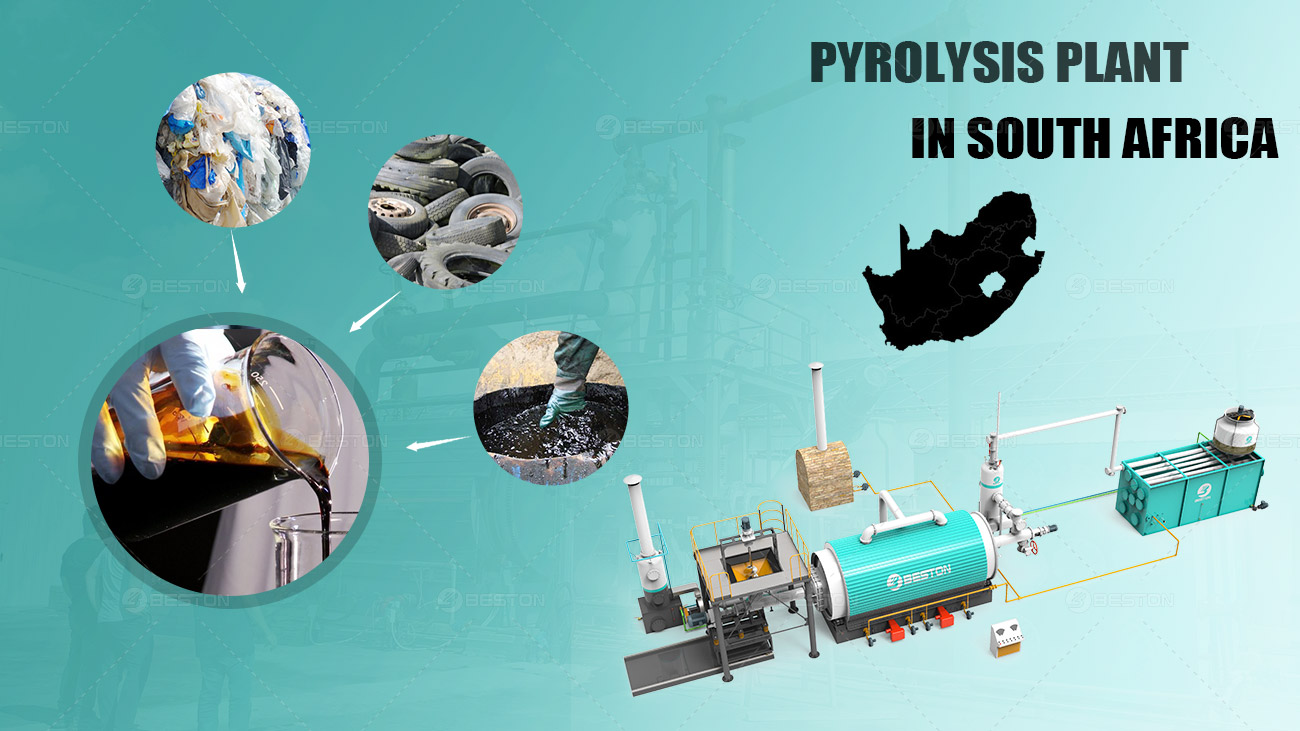Pyrolysis technology is rapidly emerging as a sustainable solution to the global waste management crisis. By converting various types of waste, such as plastics and tires, into valuable by-products like fuel oil, carbon black, and syngas, the plastic pyrolysis process has become a viable alternative to conventional waste disposal methods. This article explores the prospects of pyrolysis in different countries and regions, focusing on the pyrolysis plants in the UK, the pyrolysis machine in the Philippines, and the pyrolysis plant in South Africa.
Pyrolysis Plants in the UK: A Growing Industry
The UK has been at the forefront of promoting sustainable practices, and pyrolysis plants in the UK are increasingly seen as part of the solution to the country’s waste problem. The UK government has implemented several policies aimed at reducing plastic waste, such as the plastic packaging tax, which has boosted the demand for recycling technologies. Consequently, the plastic pyrolysis process is gaining traction among businesses seeking innovative ways to comply with these regulations while maintaining profitability.
Many companies in the UK are investing in advanced pyrolysis plants to convert end-of-life plastics and tires into fuel oil, which can be used to generate energy or further refined into valuable chemicals. Additionally, the by-products of this process, such as carbon black, can be reused in various industries, creating a circular economy. As public awareness and regulatory pressures increase, the future of pyrolysis plants in the UK looks promising, with growing investments expected in the coming years.

Pyrolysis Machine in the Philippines: A Rising Market
In Southeast Asia, the pyrolysis machine in the Philippines is starting to gain significant attention. The country faces substantial challenges in waste management due to rapid urbanization and population growth, resulting in an increase in plastic waste. Traditional methods, such as landfilling and incineration, are proving inadequate to handle the volume of waste generated, leading to environmental degradation and health concerns.
The plastic pyrolysis process offers a sustainable solution by converting non-recyclable plastics into useful products. The government and private sectors in the Philippines are recognizing the potential benefits of investing in a pyrolysis machine to tackle the waste problem. Furthermore, community-level initiatives and non-governmental organizations (NGOs) are promoting small-scale pyrolysis operations to manage local waste more effectively.
With increased focus on sustainable waste management solutions, the demand for pyrolysis machine in the Philippines is expected to rise. The technology not only helps in reducing waste accumulation but also contributes to energy generation, aligning with the country’s efforts to diversify its energy mix and reduce dependency on fossil fuels.

Pyrolysis Plant in South Africa: Meeting Environmental Challenges
South Africa faces its own set of waste management challenges, particularly with the disposal of plastics and other non-biodegradable materials. The pyrolysis plant in South Africa is gaining traction as an innovative method to handle waste, reduce landfill use, and create alternative energy sources. The country has been gradually adopting the plastic pyrolysis process to convert end-of-life plastics into fuel oil and other valuable by-products, which can be sold or reused within various industries.
Government policies are increasingly favoring technologies that promote sustainability and reduce greenhouse gas emissions. As a result, there is a growing interest in establishing more pyrolysis plants in South Africa to handle the country’s waste more efficiently and sustainably. In addition, these plants provide local employment opportunities and contribute to the economy by creating a market for recycled materials and by-products.

Conclusion
The future of the plastic pyrolysis process across different regions is bright, with each country embracing the technology to meet its unique waste management challenges. In the UK, the focus is on complying with strict environmental regulations and fostering a circular economy. In the Philippines, there is an emphasis on addressing the burgeoning waste crisis with practical, localized solutions. Meanwhile, in South Africa, the adoption of pyrolysis technology is driven by environmental concerns and the potential for economic development. As more countries and regions recognize the benefits of this innovative waste-to-energy solution, we can expect the global market for pyrolysis to continue expanding.
By investing in technologies like the pyrolysis machine in the Philippines or establishing more pyrolysis plants in the UK and South Africa, stakeholders can create a sustainable future that not only addresses waste management concerns but also contributes to economic growth and environmental conservation.